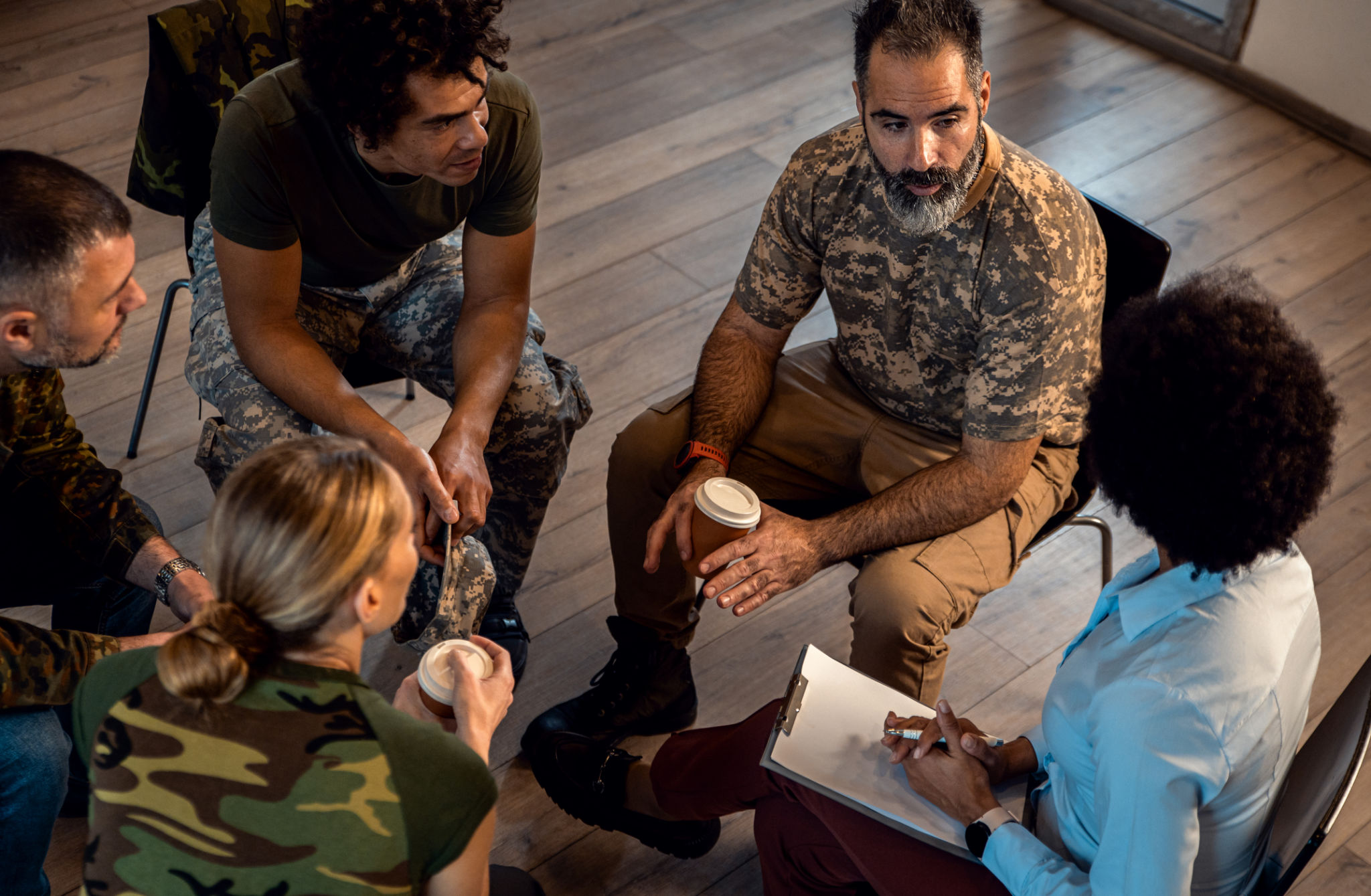The Role of Peer Support in Holistic Healing for Veterans
Understanding Holistic Healing
Holistic healing is an approach that considers the whole person—body, mind, spirit, and emotions—in the quest for optimal health and wellness. For veterans, who may face unique challenges after their service, holistic healing can be particularly beneficial. This approach aims to restore balance and harmony in all aspects of life, which is crucial for those who have experienced the intense physical and emotional demands of military service.
Veterans often encounter a range of health issues, from physical injuries to mental health conditions like PTSD. Acknowledging these challenges is the first step in the healing process. Holistic healing integrates various therapies and practices to address these issues comprehensively. This is where peer support plays a critical role in facilitating recovery and promoting a sense of community among veterans.

The Importance of Peer Support
Peer support involves veterans helping each other navigate the complexities of post-service life. This support system can include sharing experiences, offering emotional support, and providing practical advice. For many veterans, connecting with others who understand their experiences can be incredibly empowering and validating.
One significant aspect of peer support is that it promotes a sense of belonging. Many veterans may feel isolated or misunderstood by those who have not served in the military. Peer support groups create a safe space where veterans can openly discuss their feelings and challenges without fear of judgment.
Benefits of Peer Support in Healing
Peer support offers numerous benefits that contribute to the holistic healing process for veterans. Some of these benefits include:
- Emotional Validation: Veterans can share their stories and feelings with peers who truly understand and empathize.
- Shared Coping Strategies: Discussions often lead to the discovery of effective coping mechanisms that others have used successfully.
- Reduction of Stigma: By talking openly, veterans can help reduce the stigma surrounding mental health and seeking help.

Integrating Peer Support with Other Therapies
The effectiveness of holistic healing is enhanced when peer support is integrated with other therapeutic approaches. For instance, combining peer support with professional therapy, meditation, yoga, or art therapy can provide a comprehensive treatment plan that addresses various aspects of a veteran’s wellbeing.
Group activities such as workshops or retreats can also be beneficial. These settings not only foster peer connections but also introduce veterans to other holistic practices that they might find useful in their healing journey. By blending different therapies, veterans can tailor their healing process to fit their unique needs.
Creating Sustainable Support Networks
For peer support to be effective in the long term, it is essential to create sustainable networks. This can be achieved through regular meetings, online forums, and community events. Technology has made it easier than ever for veterans to stay connected despite geographical barriers.
- Encourage consistent communication through digital platforms.
- Organize regular meet-ups or virtual hangouts.
- Create resource hubs where veterans can access information easily.

The Future of Peer Support in Holistic Healing
As awareness of the significance of mental health continues to grow, the role of peer support in holistic healing for veterans is likely to expand. More organizations are recognizing the value of these networks and are working to facilitate and fund peer support initiatives.
The ongoing evolution of these programs holds promise for creating more inclusive and effective healing environments for veterans. By continuing to prioritize peer support as a key component of holistic healing, we can contribute to improving the overall quality of life for those who have served our country.